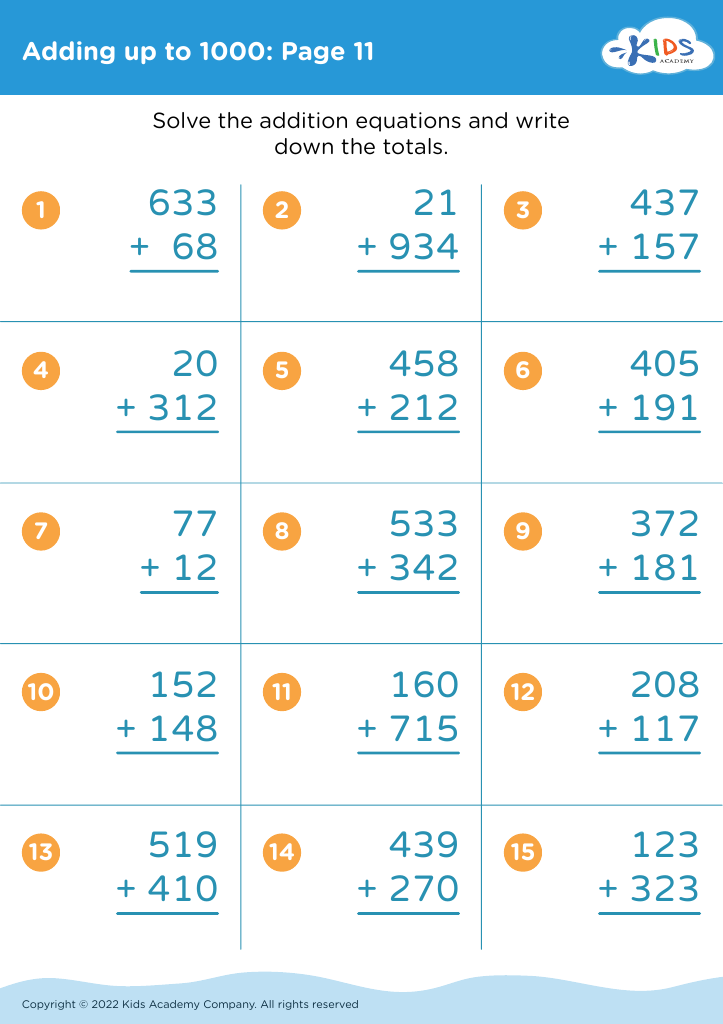Enhance problem-solving Addition Worksheets for Ages 3-8
3 filtered results
-
From - To
Our "Enhance Problem-Solving Addition Worksheets for Ages 3-8" make mastering addition both fun and educational. Designed especially for young learners, these worksheets integrate colorful graphics and engaging activities to help children understand and practice basic addition concepts. As kids solve these addition problems, they simultaneously enhance their problem-solving skills, boosting both their confidence and competence in mathematics. Created by educators, these worksheets cater to various difficulty levels, making them perfect for children of varying skill sets. Turn practice time into an enjoyable experience, fostering a love for learning while building strong foundational math skills with our expertly designed printables.
Parents and teachers should prioritize enhancing problem-solving skills in addition for young children aged 3-8 because it builds a robust mathematical foundation and nurturing critical thinking from an early age. During these formative years, children's brains are exceptionally receptive to learning new concepts and processes. By introducing problem-solving in addition, adults provide a solid base for more advanced mathematical concepts that students will encounter later on.
Problem-solving in addition integrates both arithmetic and analytical skills, encouraging children to approach challenges methodically. It helps in developing logical reasoning and persistence when faced with difficult problems. Additionally, these activities can improve attention span, working memory, and cognitive flexibility, which are essential life skills beyond mathematics.
Moreover, interactive and engaging addition problems make learning enjoyable, fostering a positive attitude towards mathematics. Children who see math as fun and rewarding are more likely to engage with it enthusiastically, reducing the likelihood of math anxiety in the future.
Early competence in addition and problem-solving builds self-confidence and a sense of achievement in young children. This early success contributes to their overall academic self-esteem and influences how they tackle challenges across all subjects. Ultimately, prioritizing these skills ensures a well-rounded, confident, and competent young learner, well-prepared for future educational success.




















